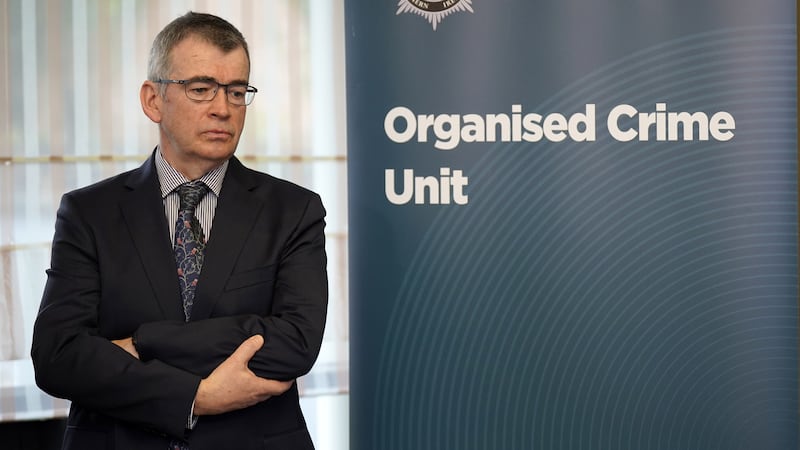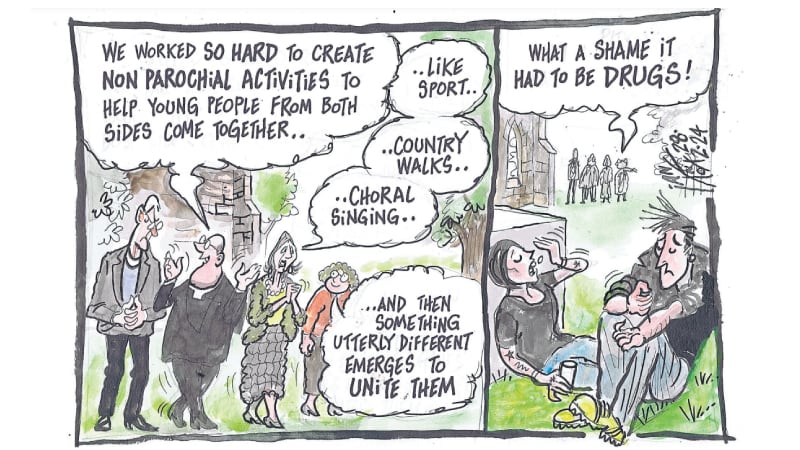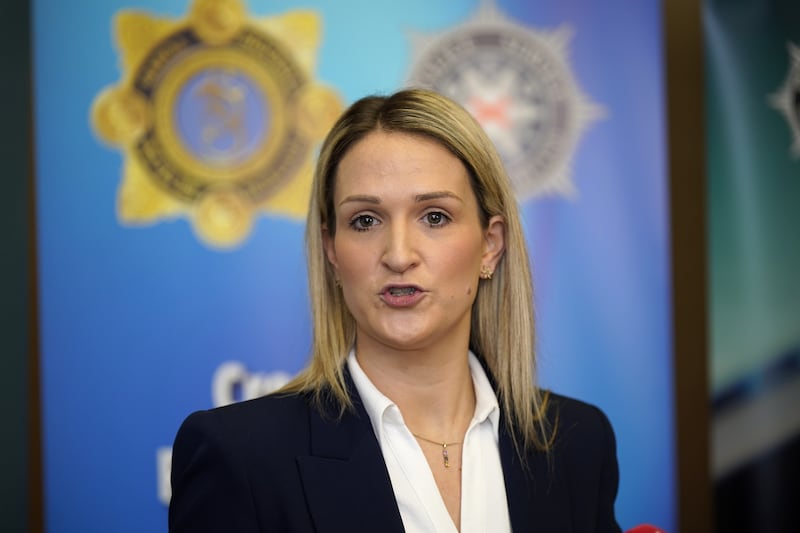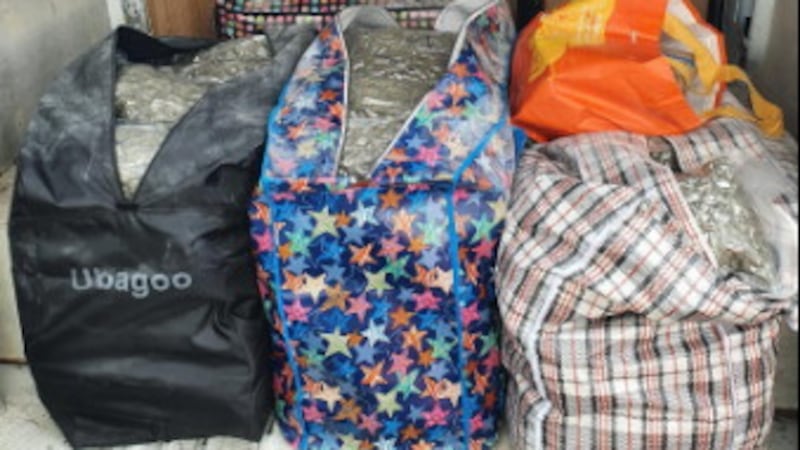The island of Ireland is seen as “affluent and a wealthy place” for drug gangs to target, the Republic’s police chief has warned.
Garda Commissioner Drew Harris said the use of drugs on both sides of the border has become prevalent and has led to a 25% increase in the price of cocaine in the last four months.
Mr Harris was joined by his Northern Ireland counterpart, PSNI Chief Constable Jon Boutcher, for the annual Cross Border Conference on Organised Crime in Co Cavan.
Justice Minister Helen McEntee also attended the event.

- Victims and families need to be listened to over Legacy Act – PSNI chiefOpens in new window
- Jon Boutcher and Drew Harris to address organised crime event in CavanOpens in new window
- Alleged drug dealer accused of having up to £12K of cocaine stashed in his home was ‘living the high life’ court hearsOpens in new window
- Trend of road fatalities is not falling – justice ministerOpens in new window
- Man arrested over drone delivery of drugs into prisonsOpens in new window
Mr Boutcher said the island of Ireland has to become a “hostile environment” for criminal gangs to operate in.
Warning of the dangers posed by cross-border gangs, Mr Harris said one of the major issues faced by both police forces is how big international crime has become.
He added: “The bigger challenge is the fact that we are seen to these organised crime groups as a wealthy country, an affluent place, and that is shown even in terms of the cocaine use that there is an Ireland.
“Cocaine use is proportionate to the prosperity of a nation and therefore we are a target, so that’s one of the principal challenges.
“The second challenge is that these organised crime groups, they’re not respecting boundaries or treaties or information-sharing agreements. They are working all the time to try and confound us in what they do.
“But we have really good people, who are out to stop them and to gain evidence and bring them to justice and actually break down those those crime groups.
“I think the biggest issue now for us, in comparison to even 20 years ago, is just how international crime has got (sic). It’s big business. Unfortunately, as an island, we are seen as an affluent place and a place to target.”
Mr Boutcher said anything that arrives in Dublin, including drugs and people trafficking, will ultimately also arrive in Belfast.
“Organised crime gangs don’t have to respect service level agreements or international protocols. We do,” the PSNI police chief added.
“There are sovereign countries that we work within, but we need to make sure our job, and all the organisations we work with, that we reduce the bureaucracy, that there’s no impediment to us going after these crime games.
“We need to make the island of Ireland a hostile environment for them to operate in. I genuinely believe that is the direction of travel that we’re in.”
Mr Harris said the use of cocaine has become so rife that the street value has jumped 25% in the last few months.
But he pointed to the collaborative work between gardai and the PSNI in recent drug busts.
He said they have also been involved in huge drugs seizures in the Caribbean and west Africa.
“The main man drug of choice still remains cannabis followed by cocaine,” said Mr Harris.

“There is obviously then a network of distribution, and we can see in part that is driven by social media use, and things like communication apps, such as WhatsApp.”
“Drugs are becoming more prevalent, and stronger as well. So, cannabis in particular, in terms of the THC content, which is the actual live content of the cannabis, is a good deal stronger than it was 20, 30 or 40 years ago, and that THC content is driving, one, addictive behaviour, but, two, then real difficulty around psychotic incidents leading on to mental health problems.”
Meanwhile, Mr Boutcher also said the attempted murder of PSNI Detective Chief Inspector John Caldwell shows the threat posed by dissident republicans has not gone away.
“That’s definitely not gone away. If anybody gets involved, dissident republicans or anybody, with regards to national security issues, we will pursue them relentlessly.
“If you come after police officers we will come after you.”
He said officers cannot be complacent around the threat to national security.
Mr Boutcher added that policing in Northern Ireland is the best he has ever seen.
“I’ve tried to work out why it is so good. I think it’s because, when you join the police service in Northern Ireland, you do make a life choice because of the threat – particularly those officers who joined from a nationalist or Catholic background.
“There’s a vocation element to it and we forget that. We forget what those officers, those members of staff, and what their families do to work within the police service, to keep communities safe.”

Among the issues discussed by the conference included emerging drugs trends on both sides of the border as well as improving co-operation between An Garda Siochana and the PSNI.
Ms McEntee praised the work between both police forces, but said there are more ways to increase it.
“We’re are also looking at human trafficking and smuggling. This is a problem that maybe people don’t realise is an issue, but certainly there has been significant efforts over the years to try and identify them, to support them,” she said.
“Other areas like economic crime… looking at criminals’ use of cryptocurrencies and looking at ways in which we can enhance our own technology to be able to respond to criminal use of technology.”









